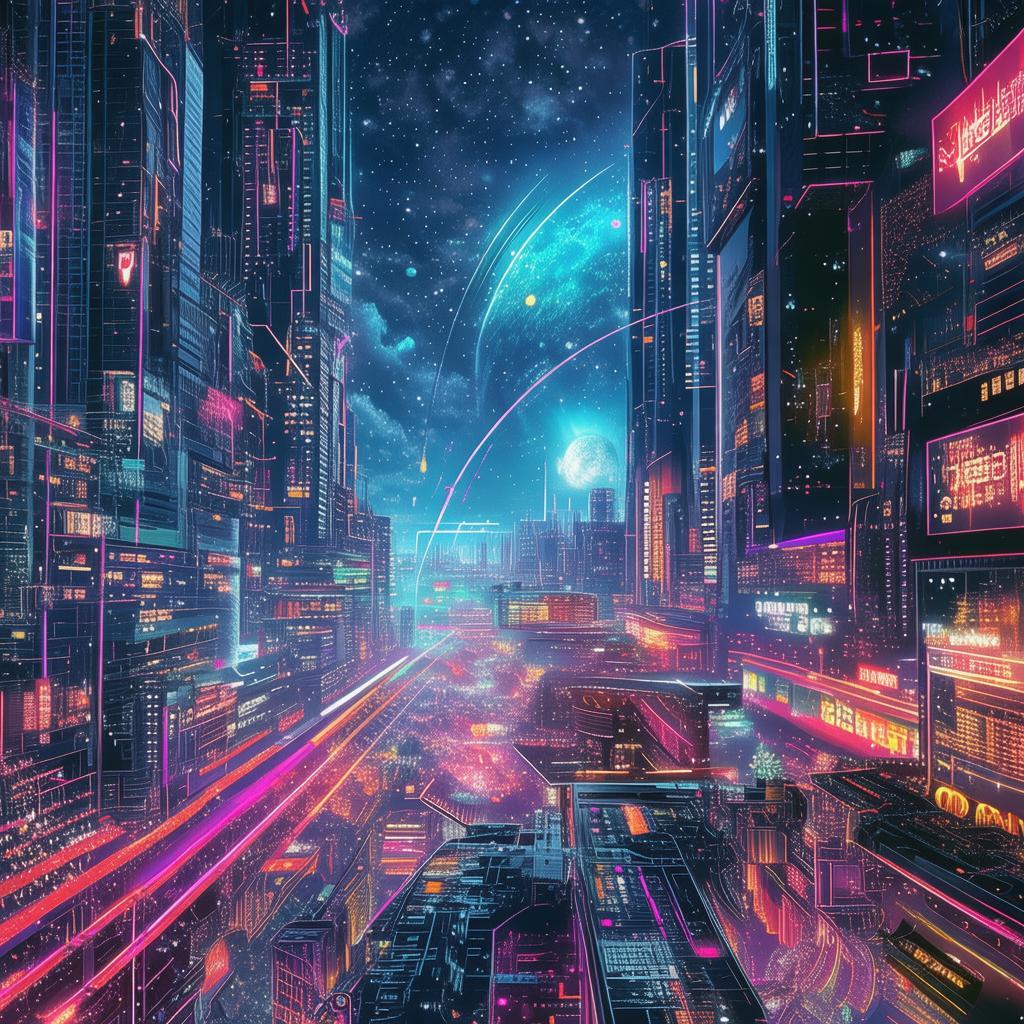The Time Weaver's Paradox
The year was 2147, and the world had been ravaged by a catastrophic event known as the Great Devastation. Cities lay in ruins, and the remnants of humanity clung to existence in sprawling, walled-off enclaves. In the heart of one such enclave, a young man named Alex had dedicated his life to the study of chronology and the theoretical possibility of time travel. His obsession was born from a personal tragedy—a time when the world was whole and untouched by the darkness that now consumed it.
Alex's research was not in vain; he had developed a device capable of time travel, though the technology was fraught with risks. One fateful day, he received a message from the future. It was a desperate plea from a group calling themselves the Citizen Time Travelers, who claimed to be on the brink of a catastrophic event that would end all hope for humanity.
In the name of saving the future, Alex activated the device and found himself in the year 2247. The world he had seen in the message was even more desolate than he had feared. The Citizen Time Travelers revealed that they were on the cusp of a war between two factions, each fighting for control over the remaining resources and technology. If the war escalated, it would lead to a total collapse of civilization.

The Citizen Time Travelers tasked Alex with altering the past to prevent the war from ever happening. They provided him with a series of timelines, each with different events that could potentially prevent the war. Alex set out on a perilous journey through time, encountering allies and enemies alike.
As he delved deeper into the past, Alex began to question the true nature of time travel and its impact on the fabric of reality. He learned that each change he made in the past created a new timeline, and the original timeline continued to exist as well. This paradox became a source of immense internal conflict for Alex, who found himself torn between the desire to save the future and the consequences of his actions.
One of his earliest interventions involved a young girl named Elara, who was destined to become a pivotal figure in the future conflict. Alex met Elara in a small village and, against his better judgment, convinced her to join the Citizen Time Travelers. He believed that by doing so, he could prevent the war from ever occurring.
As time passed, Alex's interventions grew more complex. He found himself in the midst of political intrigue and espionage, his decisions affecting the lives of countless people. He grew to care deeply about the people he met along the way, including a resistance leader named Kael, who had a personal vendetta against the war's instigators.
One night, as Alex sat in a small, dimly lit room, he received a message from his past self. It was a video, and in it, his younger self warned him of the consequences of his actions. The video revealed that every change he made had led to a darker future, with the Citizen Time Travelers becoming an oppressive regime. Alex realized that he had become the very thing he had set out to prevent—the cause of a new dystopia.
Desperate to reverse the course of history, Alex traveled back to the moment he first met Elara. He knew that he had to prevent her from joining the Citizen Time Travelers, but doing so would mean losing the love and friendship of a person he had come to care for deeply. The emotional conflict was overwhelming, and as he made his decision, Alex understood the true cost of time travel.
He returned to his own time, a broken man, his mission failed. The dystopian future remained, but with a newfound clarity. Alex realized that the true power of time travel was not in altering the past, but in learning from it and making better choices in the present.
In the end, Alex dedicated himself to rebuilding his world, not through time travel, but through the example of kindness and resilience. He became a mentor to the young, teaching them about the importance of unity and the power of hope.
The Time Weaver's Paradox was a story that echoed through the ages, a cautionary tale of the perils of time travel and the eternal cycle of cause and effect. It was a testament to the resilience of the human spirit and the enduring quest for a better future.
✨ Original Statement ✨
All articles published on this website (including but not limited to text, images, videos, and other content) are original or authorized for reposting and are protected by relevant laws. Without the explicit written permission of this website, no individual or organization may copy, modify, repost, or use the content for commercial purposes.
If you need to quote or cooperate, please contact this site for authorization. We reserve the right to pursue legal responsibility for any unauthorized use.
Hereby declared.









